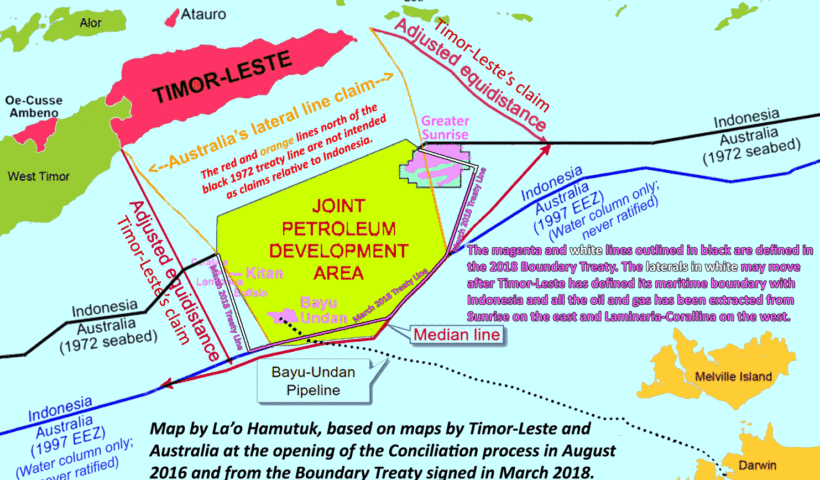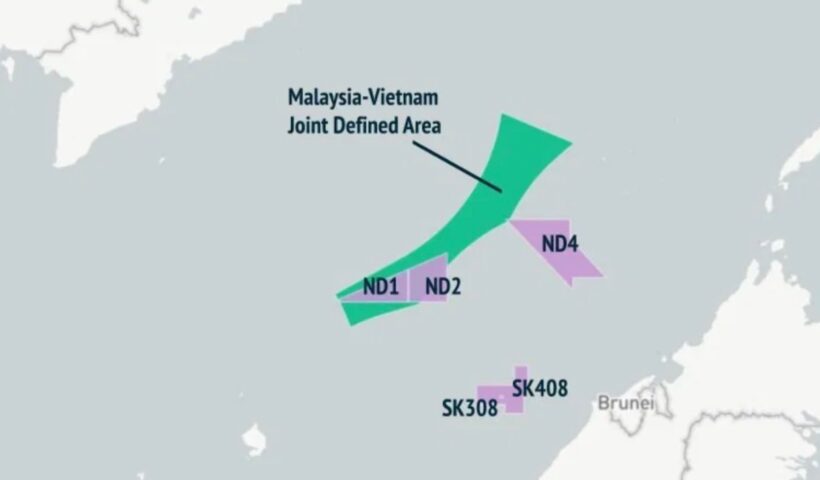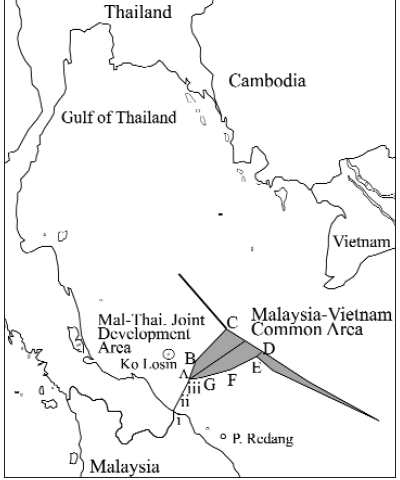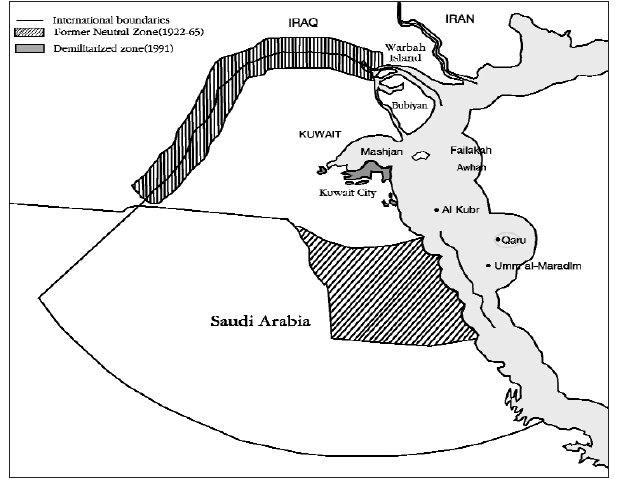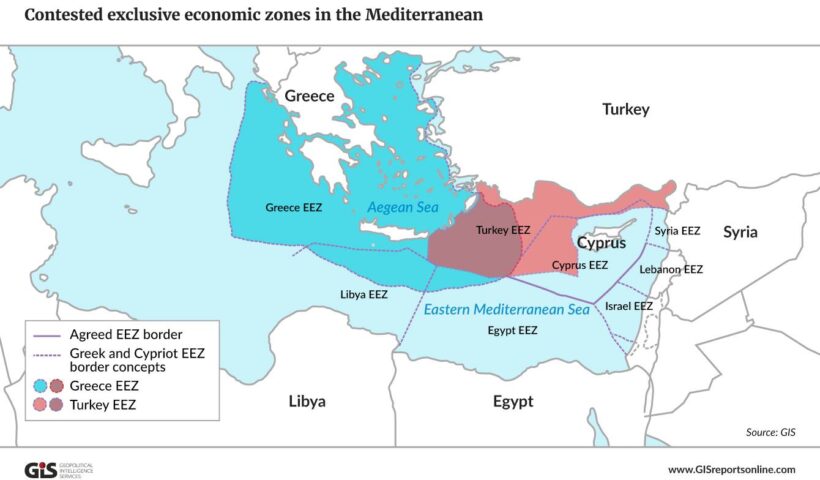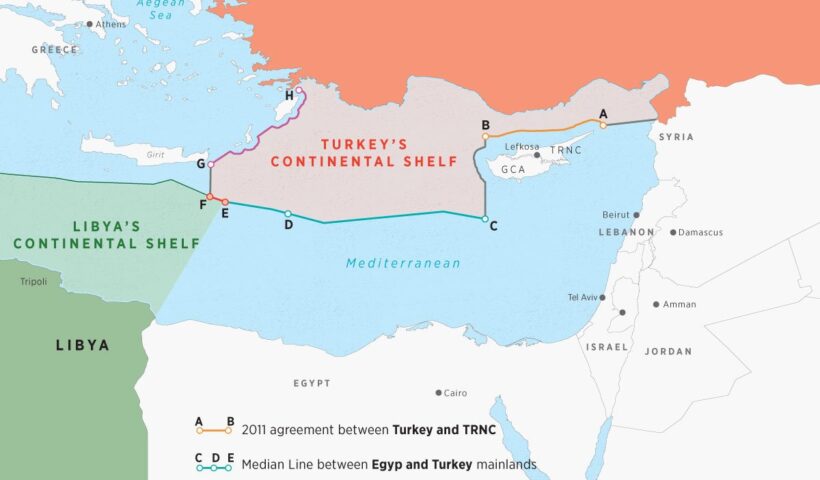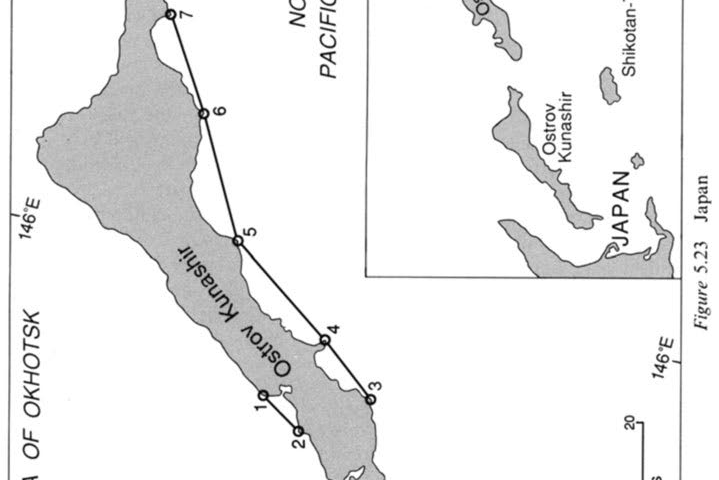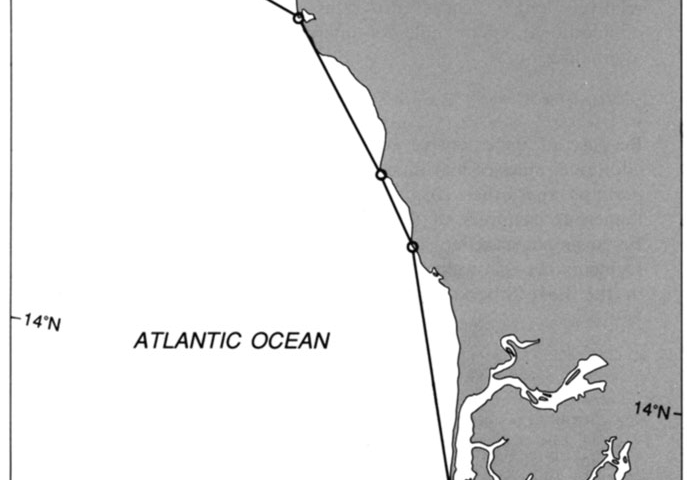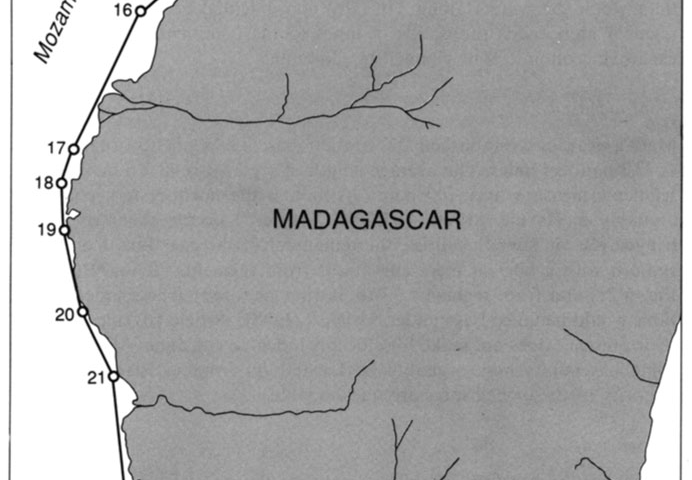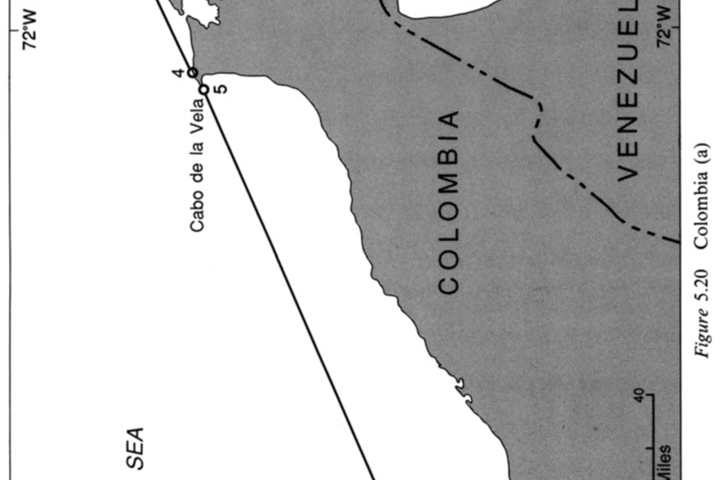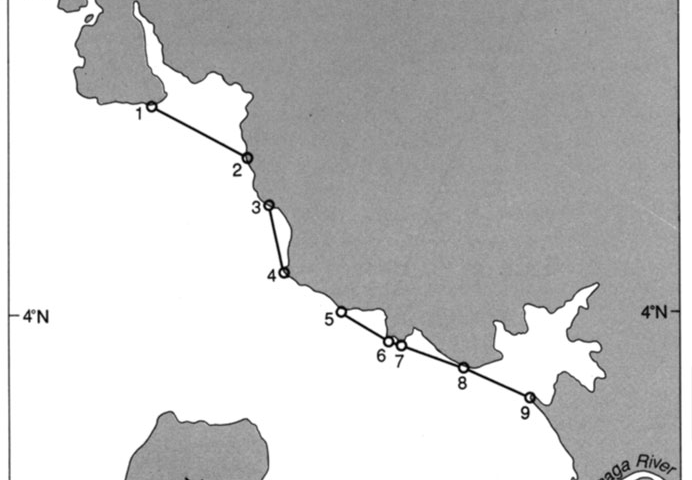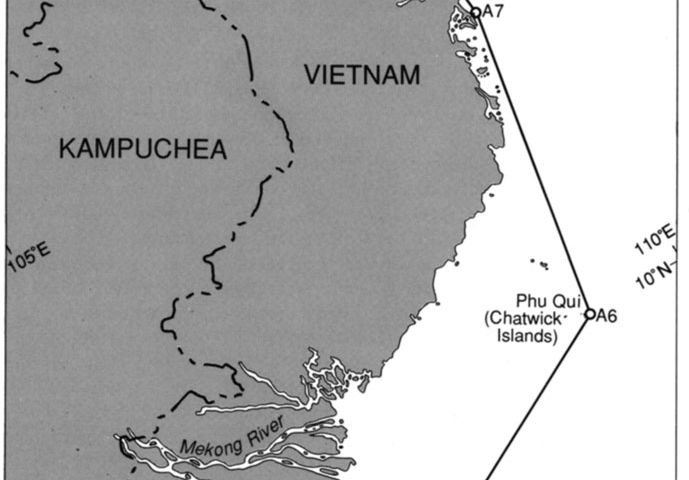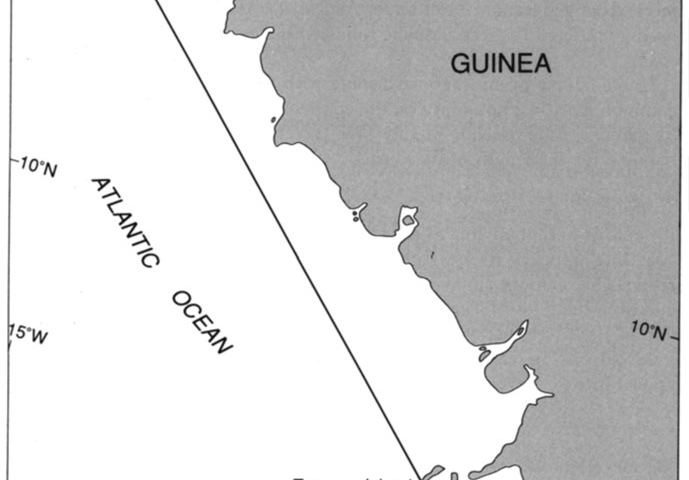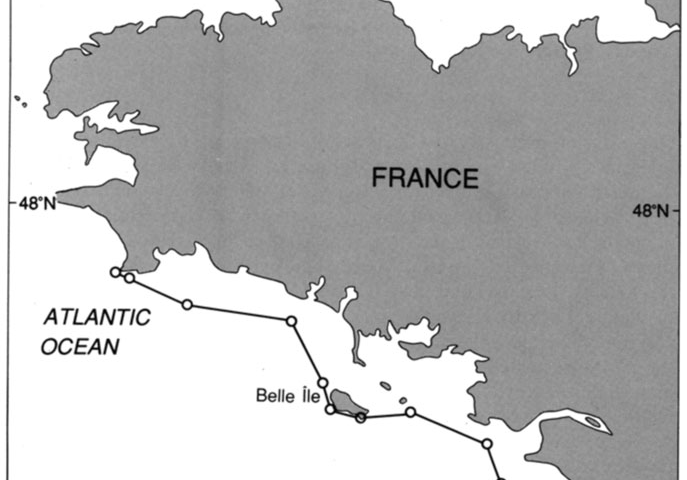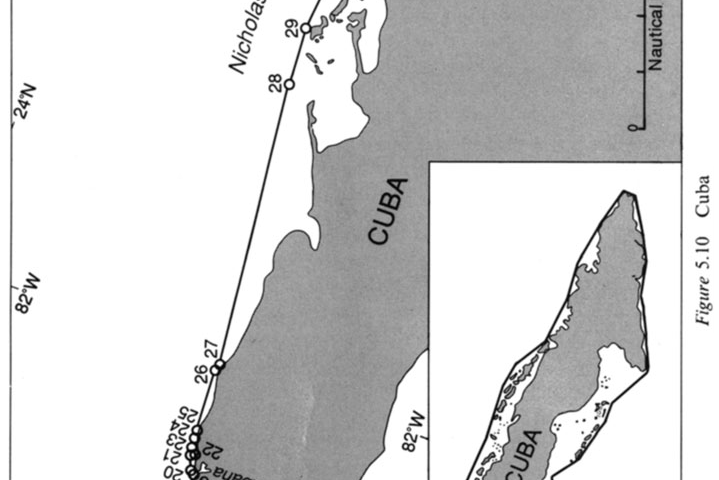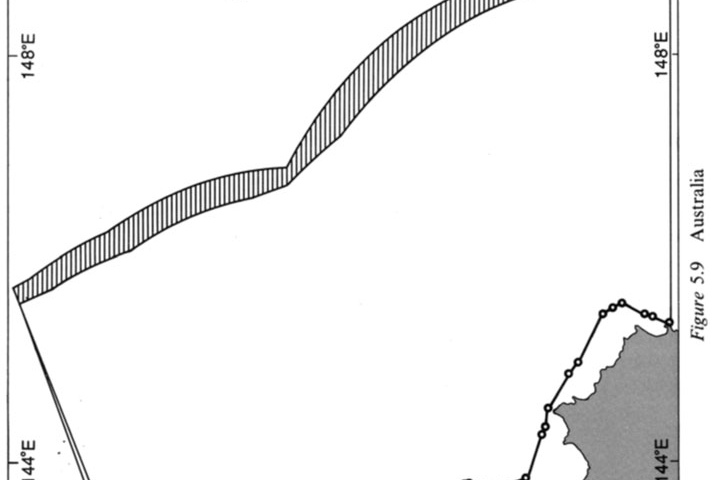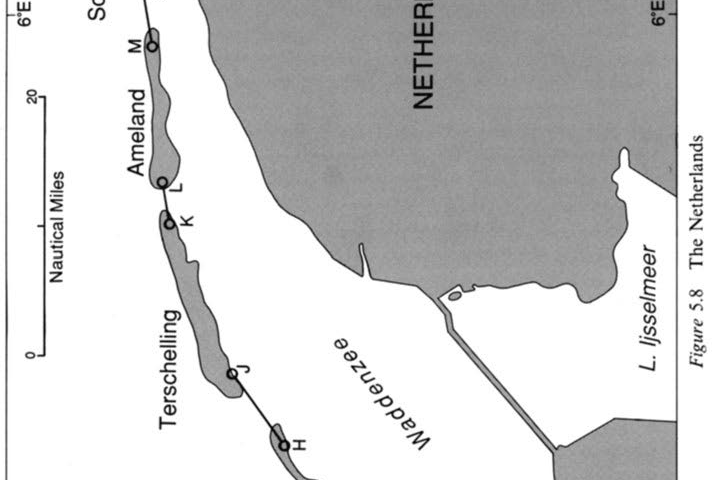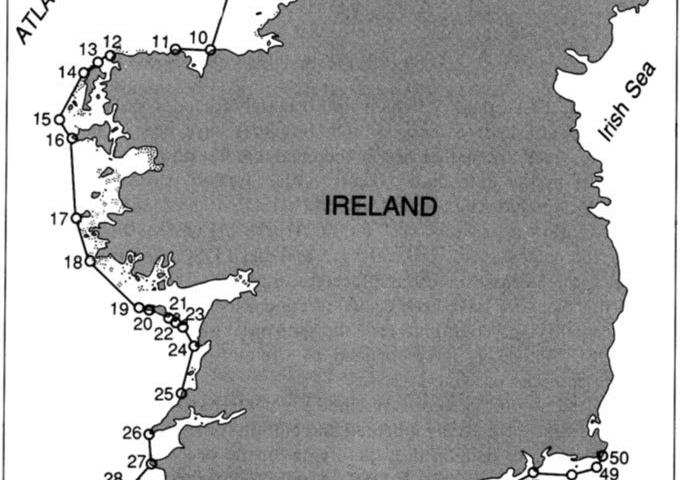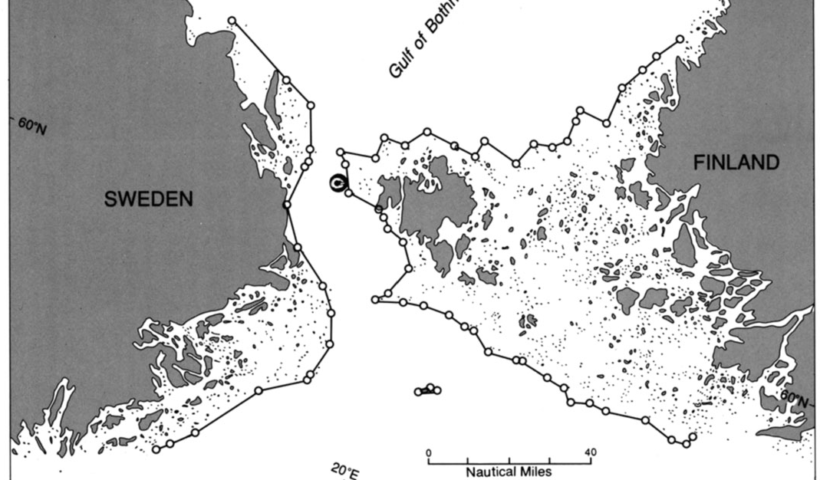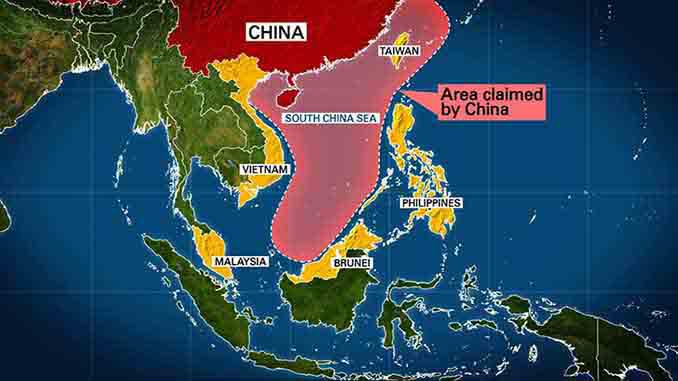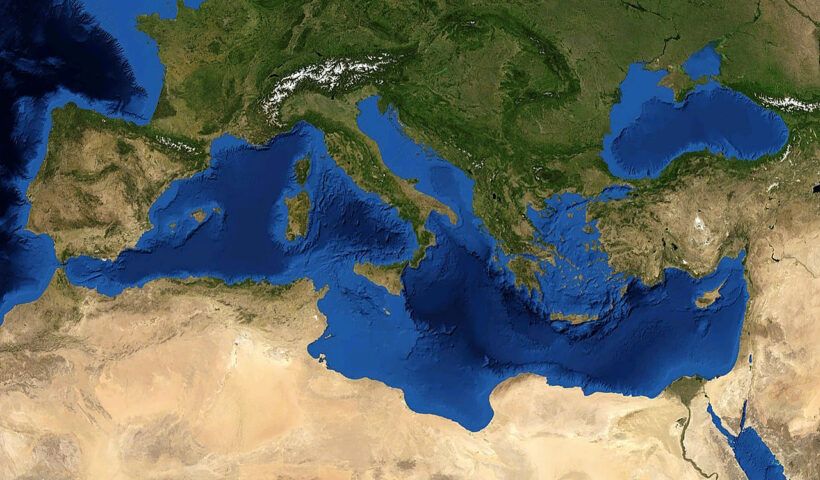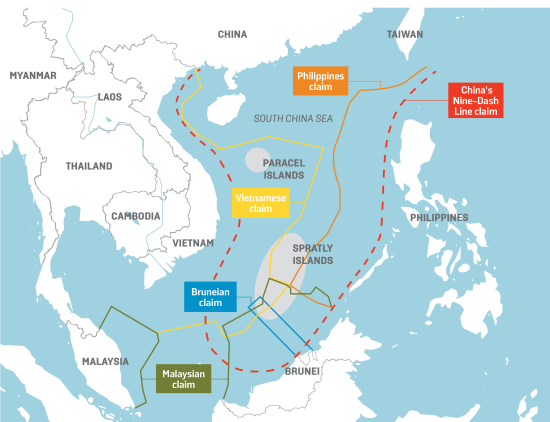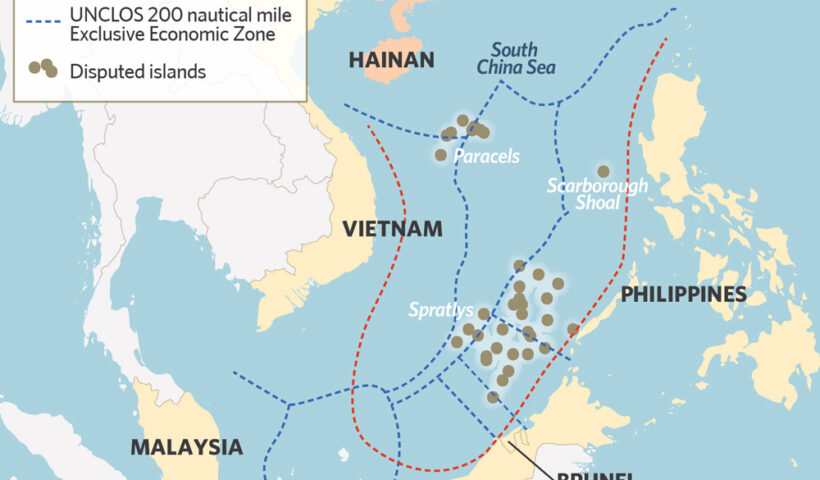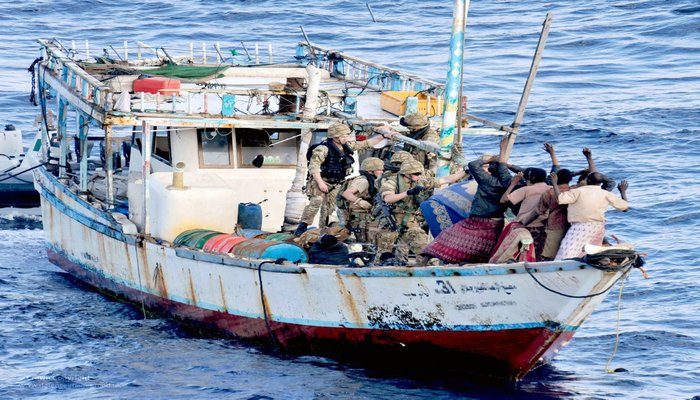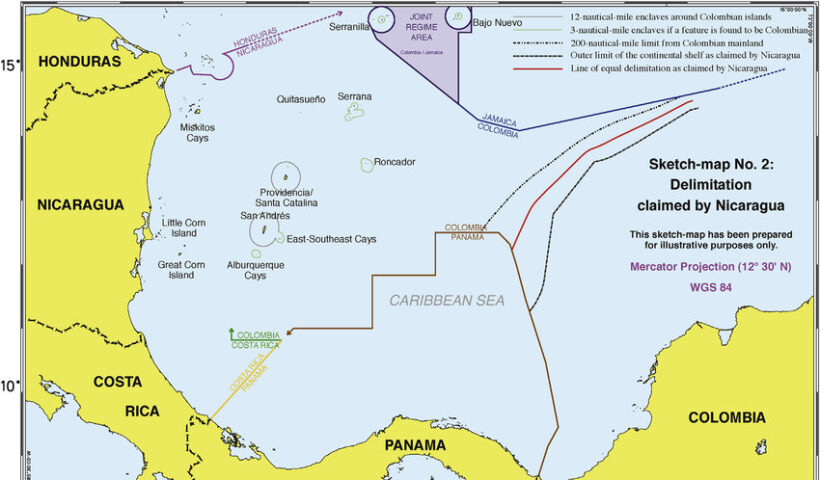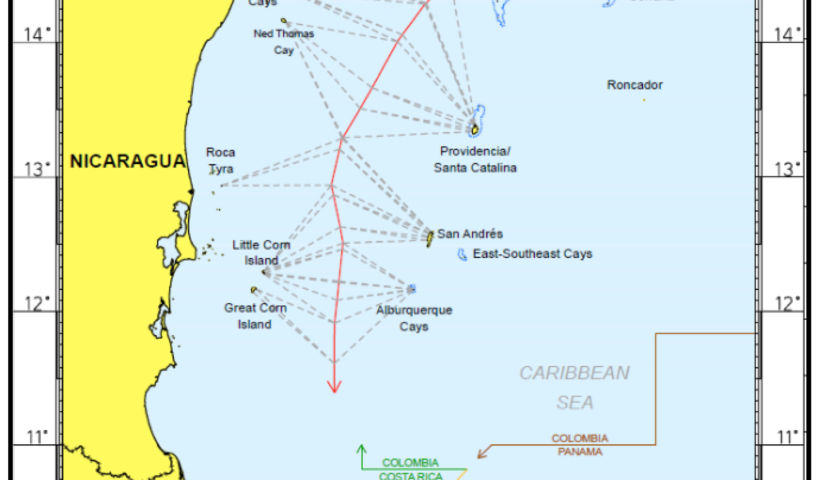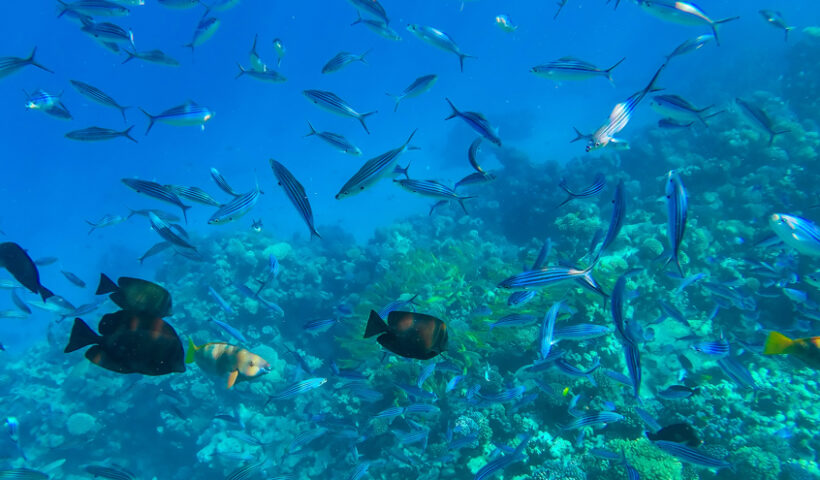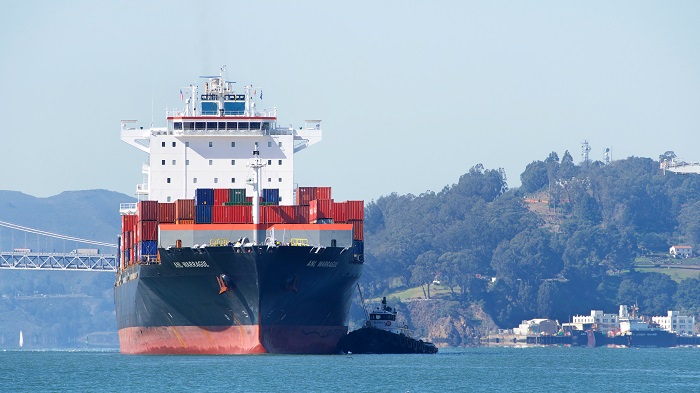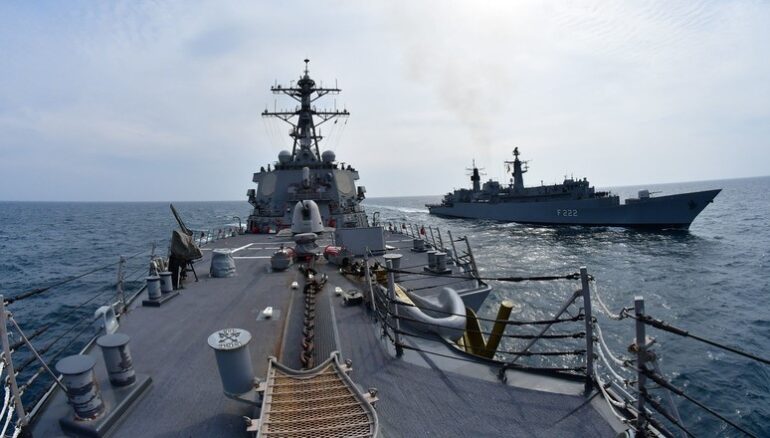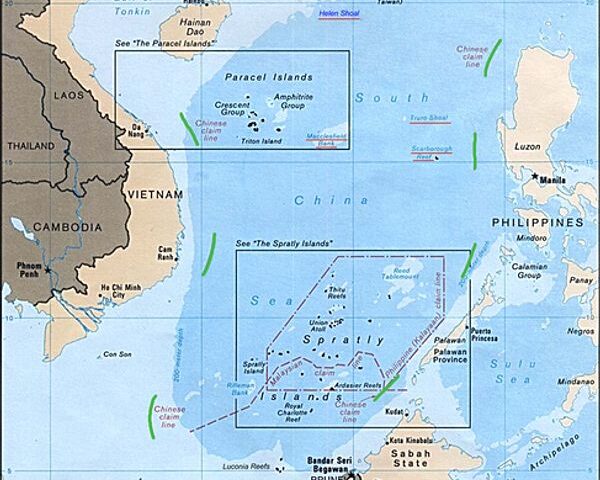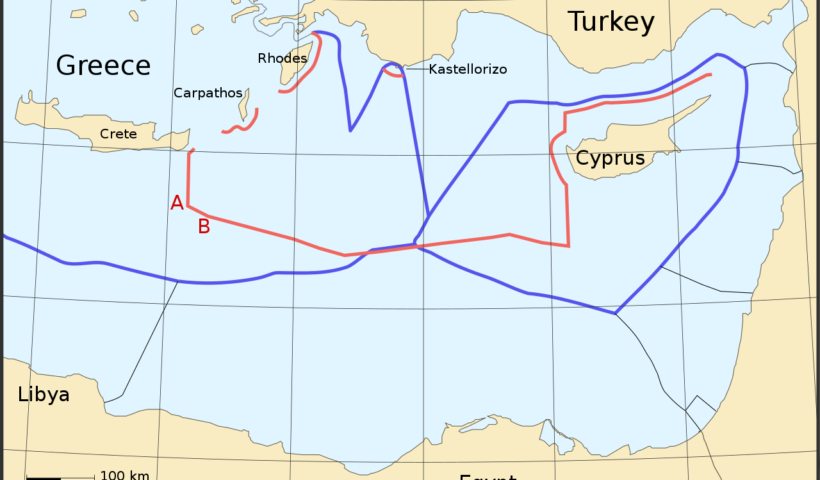Practice on Provisional Arrangements in maritime Disputed Areas, JOINT DEVELOPMENT ZONES, Australia-Indonesia case, Australia, continental shelf boundaries, ibya/Malta Continental Shelf Case, Indonesia, JOINT DEVELOPMENT ZONES, median line, offshore areas of West Timor, Timor Gap, Timor Gap treaty, Treaty on the Zone of Co-operation in an Area between the Indonesian Province of East Timor and Northern Australia
View More Practice on Provisional Arrangements in maritime Disputed Areas, JOINT DEVELOPMENT ZONES, Australia-Indonesia caseMonth: April 2021
Practice on Provisional Arrangements in maritime Disputed Areas, JOINT DEVELOPMENT ZONES, Malaysia-Vietnam case
Practice on Provisional Arrangements in maritime Disputed Areas, JOINT DEVELOPMENT ZONES, Malaysia-Vietnam case, continental shelf, equidistant line, equidistant line between the coasts of the mainland of the two countries, Gulf of Thailand, Joint Development Zone, malaysia, Vietnam
View More Practice on Provisional Arrangements in maritime Disputed Areas, JOINT DEVELOPMENT ZONES, Malaysia-Vietnam casePractice on Provisional Arrangements in maritime Disputed Areas, JOINT DEVELOPMENT ZONES, Malaysia-Thailand case
Practice on Provisional Arrangements in maritime Disputed Areas, JOINT DEVELOPMENT ZONES, Malaysia-Thailand case, Continental Shelf Boundary, JOINT DEVELOPMENT ZONES, malaysia, Method of Shaping the Joint Development Zone, Thailand
View More Practice on Provisional Arrangements in maritime Disputed Areas, JOINT DEVELOPMENT ZONES, Malaysia-Thailand casePractice on Provisional Arrangements in maritime Disputed Areas, JOINT DEVELOPMENT ZONES, KOREA AND JAPAN case
Practice on Provisional Arrangements in maritime Disputed Areas, JOINT DEVELOPMENT ZONES, KOREA AND JAPAN case, Continental Shelf Boundary, East China Sea, EEZ, EEZ boundary, EEZ fisheries zones, exclusive economic zone of Japan, exclusive economic zone of the Republic of Korea, flag State jurisdiction, Japan, JOINT DEVELOPMENT ZONES, Korea, KOREA AND JAPAN, Korea-Japan Fisheries Committee, Kyushu and Hokkaido of Japan, LOS Convention, Minquiers and Ecrehos Case, Peace line, provisional zones, Southern Bluefin Tuna Arbitration of 2000, UNCLOS I
View More Practice on Provisional Arrangements in maritime Disputed Areas, JOINT DEVELOPMENT ZONES, KOREA AND JAPAN casePractice on Provisional Arrangements in maritime Disputed Areas, JOINT DEVELOPMENT ZONES, Kuwait-Saudi Arabia case
Practice on Provisional Arrangements in maritime Disputed Areas, JOINT DEVELOPMENT ZONES, Kuwait-Saudi Arabia case, Al Uqair Protocol of 1922, American Independent Oil Company, JDZ, JOINT DEVELOPMENT ZONES, Kuwait, Kuwait-Saudi Arabia case, maritime Disputed Areas, Neutral Zone, Pacific Western Oil Corporation, Qarah island, Saudi Arabia, territorial sea
View More Practice on Provisional Arrangements in maritime Disputed Areas, JOINT DEVELOPMENT ZONES, Kuwait-Saudi Arabia caseCan a Coastal State Conduct Marine Scientific Research in the Disputed Areas Without Consent from the Other Coastal State?
Can a Coastal State Conduct Marine Scientific Research in the Disputed Areas Without Consent from the Other Coastal State?, Aegean Sea Continental Shelf Case, Article 245 of the LOSC, Article 246 of the LOSC, Chinese exploration activities in the East China Sea, coastal State, East China Sea, exclusivity of knowledge, Greece, ICJ, ICSU, ILC, International Council of Scientific Union, International Law Commission, LOS Convention, Research in the Disputed Areas, sea-bed, sea-bed and subsoil of the continental shelf, seismic exploration, turkey
View More Can a Coastal State Conduct Marine Scientific Research in the Disputed Areas Without Consent from the Other Coastal State?Can a Third State Conduct Marine Scientific Research in a Disputed Area Without Consent from Any of Two Coastal States?
Can a Third State Conduct Marine Scientific Research in a Disputed Area Without Consent from Any of Two Coastal States?, coastal States, marine scientific research by a third State, Third State Conduct Marine Scientific Research in a Disputed Area
View More Can a Third State Conduct Marine Scientific Research in a Disputed Area Without Consent from Any of Two Coastal States?Baselines Drawn under Article 4 ( LOSC Article 7) which Subvert Other Convention Provisions, USSR(now Russia)case
Baselines Drawn under Article 4 ( LOSC Article 7) which Subvert Other Convention Provisions, USSR(now Russia)case, extensive coastline, Kamchatka Peninsula, Kara Sea, North Pacific, russia, Sea of Japan, Sea of Okhotsk, Tartar Strait, USSR, Vrangelya Island
View More Baselines Drawn under Article 4 ( LOSC Article 7) which Subvert Other Convention Provisions, USSR(now Russia)caseBaselines Drawn under Article 4 ( LOSC Article 7) which Subvert Other Convention Provisions, Senegal case
Baselines Drawn under Article 4 ( LOSC Article 7) which Subvert Other Convention Provisions, Senegal case, de Sangomar and the Gambian border, Senegal, straight baseline, straight baseline system
View More Baselines Drawn under Article 4 ( LOSC Article 7) which Subvert Other Convention Provisions, Senegal caseBaselines Drawn under Article 4 ( LOSC Article 7) which Subvert Other Convention Provisions, Madagascar case
Baselines Drawn under Article 4 ( LOSC Article 7) which Subvert Other Convention Provisions, Madagascar case, fringing islands, Madagascar, straight baseline
View More Baselines Drawn under Article 4 ( LOSC Article 7) which Subvert Other Convention Provisions, Madagascar caseBaselines Drawn under Article 4 ( LOSC Article 7) which Subvert Other Convention Provisions, Colombia (Caribbean Coast) case
Baselines Drawn under Article 4 ( LOSC Article 7) which Subvert Other Convention Provisions, Colombia (Caribbean Coast) case, Cabo de Ia Vela, Caribbean Coast, Colombia, Golfo de Venezuela, Juridical Bays, Punta de Gallinas, Straight Baselines
View More Baselines Drawn under Article 4 ( LOSC Article 7) which Subvert Other Convention Provisions, Colombia (Caribbean Coast) caseBaselines Drawn under Article 4 ( LOSC Article 7) which Subvert Other Convention Provisions, Cameroon case
Baselines Drawn under Article 4 ( LOSC Article 7) which Subvert Other Convention Provisions, Cameroon case, Cameroon, enclose juridical bays, low-water mark, River Bimbia, straight baseline
View More Baselines Drawn under Article 4 ( LOSC Article 7) which Subvert Other Convention Provisions, Cameroon caseSTATE CLAIMS IN VIOLATION OF ARTICLE 4 (LOSC ARTICLE 7), Vietnam case
STATE CLAIMS IN VIOLATION OF ARTICLE 4 (LOSC ARTICLE 7), Vietnam case, Con Dao, Dao Tho Chu, Hon Khoai, Mekong delta, Phu Qui group (Chatwick Islands), straight baseline, Vietnam
View More STATE CLAIMS IN VIOLATION OF ARTICLE 4 (LOSC ARTICLE 7), Vietnam caseSTATE CLAIMS IN VIOLATION OF ARTICLE 4 (LOSC ARTICLE 7), Italy case
STATE CLAIMS IN VIOLATION OF ARTICLE 4 (LOSC ARTICLE 7), Italy case, Gulf of Taranto, internal waters, italy, juridical bay, Juridical Bays, Ligurian Sea, straight baseline
View More STATE CLAIMS IN VIOLATION OF ARTICLE 4 (LOSC ARTICLE 7), Italy caseSTATE CLAIMS IN VIOLATION OF ARTICLE 4 (LOSC ARTICLE 7), Guinea case
An egregious breach was committed by Guinea in its Decree of 1964 which purported to establish a single straight baseline of 120 n.m. enclosing its entire coastline (see Fig. 5.14). The Guinean coastline is somewhat indented in localities, but it certainly does not pass muster under any interpretation of the “deeply indented and cut into” language of Article 4 (LOSC Article 7). To view Sene Island in the north and Tamara Island in the south as together constituting an island fringe is also to misapprehend that requirement as it is used in the Convention. The islands have no spatial relationship to one another nor are they within 12 n.m. of the coast. Having failed to meet either geographical test under Article 4(1) (LOSC Article 7(1)), it hardly mattered that the baseline followed the general direction of the coast.
STATE CLAIMS IN VIOLATION OF ARTICLE 4 (LOSC ARTICLE 7), Guinea case, Guinea, Guinea-Bissau, Guinean coastline, maritime boundary, north and Tamara Island, straight baseline
STATE CLAIMS IN VIOLATION OF ARTICLE 4 (LOSC ARTICLE 7), France case
STATE CLAIMS IN VIOLATION OF ARTICLE 4 (LOSC ARTICLE 7), France case, france, straight baseline
View More STATE CLAIMS IN VIOLATION OF ARTICLE 4 (LOSC ARTICLE 7), France caseSTATE CLAIMS IN VIOLATION OF ARTICLE 4 (LOSC ARTICLE 7), Senegal case
STATE CLAIMS IN VIOLATION OF ARTICLE 4 (LOSC ARTICLE 7), Senegal case, Riviere Casamance, Senegal, straight baseline
View More STATE CLAIMS IN VIOLATION OF ARTICLE 4 (LOSC ARTICLE 7), Senegal caseSTATE CLAIMS IN VIOLATION OF ARTICLE 4 (LOSC ARTICLE 7), lceland case
STATE CLAIMS IN VIOLATION OF ARTICLE 4 (LOSC ARTICLE 7), lceland case, lceland, straight baseline
View More STATE CLAIMS IN VIOLATION OF ARTICLE 4 (LOSC ARTICLE 7), lceland caseSTATE CLAIMS IN VIOLATION OF ARTICLE 4 (LOSC ARTICLE 7), Cuba case
STATE CLAIMS IN VIOLATION OF ARTICLE 4 (LOSC ARTICLE 7), Cuba case, Common Heritage, cuba, Nicholas Channel, straight baseline
View More STATE CLAIMS IN VIOLATION OF ARTICLE 4 (LOSC ARTICLE 7), Cuba caseSTATE CLAIMS IN VIOLATION OF ARTICLE 4 (LOSC ARTICLE 7), Australia case
STATE CLAIMS IN VIOLATION OF ARTICLE 4 (LOSC ARTICLE 7), Australia case, Australia, Cape York Peninsula, Coral Sea, straight baseline
View More STATE CLAIMS IN VIOLATION OF ARTICLE 4 (LOSC ARTICLE 7), Australia caseSTATE CLAIMS IN SUBSTANTIAL CONFORMITY WITH ARTICLE 4 (LOSC ARTICLE 7), The Netherlands case
STATE CLAIMS IN SUBSTANTIAL CONFORMITY WITH ARTICLE 4 (LOSC ARTICLE 7), The Netherlands case, netherlands, straight baseline
View More STATE CLAIMS IN SUBSTANTIAL CONFORMITY WITH ARTICLE 4 (LOSC ARTICLE 7), The Netherlands caseSTATE CLAIMS IN SUBSTANTIAL CONFORMITY WITH ARTICLE 4 (LOSC ARTICLE 7), lreland case
STATE CLAIMS IN SUBSTANTIAL CONFORMITY WITH ARTICLE 4 (LOSC ARTICLE 7), lreland case, internal waters, lreland, straight baseline
View More STATE CLAIMS IN SUBSTANTIAL CONFORMITY WITH ARTICLE 4 (LOSC ARTICLE 7), lreland caseSTATE CLAIMS IN SUBSTANTIAL CONFORMITY WITH ARTICLE 4 (LOSC ARTICLE 7), Canada case
STATE CLAIMS IN SUBSTANTIAL CONFORMITY WITH ARTICLE 4 (LOSC ARTICLE 7), Canada case, Canada, Canadian straight baseline, Scandinavian coasts
View More STATE CLAIMS IN SUBSTANTIAL CONFORMITY WITH ARTICLE 4 (LOSC ARTICLE 7), Canada caseSTATE CLAIMS IN SUBSTANTIAL CONFORMITY WITH ARTICLE 4 (LOSC ARTICLE 7), Norway, Sweden, and Finland cases
STATE CLAIMS IN SUBSTANTIAL CONFORMITY WITH ARTICLE 4 (LOSC ARTICLE 7), Norway, Sweden, and Finland cases, Finland, LOSC, Norway, Sweden
View More STATE CLAIMS IN SUBSTANTIAL CONFORMITY WITH ARTICLE 4 (LOSC ARTICLE 7), Norway, Sweden, and Finland caseslegal issues and marine laws of mainland China and Taiwan
legal issues and marine laws of mainland China and Taiwan, China, continental shelf, exclusive economic zone, LOS Convention, Taiwan, Yellow Sea
View More legal issues and marine laws of mainland China and TaiwanLegal Nature of Maritime Delimitation in law of the sea and customary international law
Maritime delimitation may be defined as the process of establishing lines separating the spatial ambit of coastal State jurisdiction over maritime space where the legal title overlaps with that of another State. This definition calls for five comments:… Legal Nature of Maritime Delimitation in law of the sea and customary international law, a just and equitable share, continental shelf, délimitation constitutive, délimitation déclarative, EEZ, geographical co-ordinates, Gulf of Maine case, internal waters, International Sea-Bed Authority, maritime delimitation, North Sea Continental Shelf cases, provisional delimitation line, territorial sea, What are the stages of maritime boundary?, What is a single maritime boundary?, What is delimited boundary?, What is maritime space?, What is median line principle?, What is the difference between demarcation and delimitation?, Which law delimits world seas?
View More Legal Nature of Maritime Delimitation in law of the sea and customary international lawlegal definition of an enclosed or semi-enclosed sea
An enclosed sea was not a fully closed sea such as the Caspian Sea or the Aral Sea, which had no outlets to the oceans. It was, instead, a small body of inland water, such as the Persian Gulf and the Baltic Sea, which had at least one outlet to the open sea.
On the other hand, he explained that the term ‘semi-enclosed sea’:
[…] could be used in a broad sense to cover larger sea basins along the margins of the main ocean basins, more or less enclosed by a land mass whether continental or insular – and with one or more narrow outlets to the oceans.. legal definition of an enclosed or semi-enclosed sea, Aral Sea, Article 122 at UNCLOS III, Baltic Sea, Caspian Sea, closed seas, Dead Sea, enclosed sea, Mediterranean sea, open sea, Persian Gulf, semi-enclosed sea, UNCLOS
International Law in the South China Sea
International Law in the South China Sea, artificial islands, Commission on the Limits of the Continental Shelf, contiguous zone, continental shelf, Convention on the Continental Shelf, Convention on the High Seas, Convention on the Territorial Sea, EEZ, exclusive economic zone, internal waters, ISLANDS, low-tide elevations, maritime zones, rocks, south china sea, South China Sea dispute, UNCLOS I, UNCLOS II, UNCLOS III
View More International Law in the South China SeaHistory of the South China Sea Disputes, facts and legal approach
History of the South China Sea Disputes, facts and legal approach, South China Sea Disputes
View More History of the South China Sea Disputes, facts and legal approachRecent Developments about piracy in law of the sea and customary international law
In general the difficulties created by recent incidents of piracy and violentacts against shipping have not been due to doubts or disagreementabout the proper characterization…
View More Recent Developments about piracy in law of the sea and customary international lawPiracy in the Traditional Law of the Sea
Piracy in the Traditional Law of the Sea, 1988 SUA Convention, armed robbery, armed robbery against ships, Gulf Aden, IMO, Piracy, self-defence, Straits of Malacca, territorial sea, armed robbery against ships, Convention on the Suppression of Unlawful Acts Against the Safety of Maritime Navigation, IMO, International Maritime Organization, international shipping, Piracy
View More Piracy in the Traditional Law of the SeaDelimitation of the Continental Shelf Beyond 200 Nautical Miles in law of the sea and customary international law
The delimitation of the continental shelf beyond 200 nautical miles is a comparatively new subject in the law of maritime delimitation. In this regard, three issues need further consideration: (i) entitlements to the continental shelf beyond 200 nautical miles, (ii) the relationship between the CLCS and an international court or tribunal, and (iii) the methodology.. Delimitation of the Continental Shelf Beyond 200 Nautical Miles in law of the sea and customary international law, Bangladesh/India case, Bangladesh/Myanmar case, continental shelf, Delimitation of the Continental Shelf, Delimitation of the Continental Shelf Beyond 200 Nautical Miles, Ghana/Côte d’Ivoire cases, LOSC, maritime delimitation, What are the characteristics of the continental shelf?, What does continental slope mean?, What extended continental shelf?, What is continental shelf limit?, What is the importance of continental shelf?, What is the largest continental shelf?, Where is the continental shelf?
View More Delimitation of the Continental Shelf Beyond 200 Nautical Miles in law of the sea and customary international lawJudicial Creativity in the Law of Maritime Delimitation
Judicial Creativity in the Law of Maritime Delimitation, Anglo-French Continental Shelf Arbitration, Gulf of Maine cases, maritime delimitation, opinio juris, What are the stages of maritime boundary?, What is a single maritime boundary?, What is delimited boundary?, What is maritime space?, What is median line principle?, What is the difference between demarcation and delimitation?, Which law delimits world seas?
View More Judicial Creativity in the Law of Maritime DelimitationEnvironmental Factors as a RELEVANT CIRCUMSTANCES in delimitation process in law of the sea and customary international law
While protection of the marine environment is a matter of important concern, the existing case law seems to pay little attention to environmental concern in the context of maritime delimitations. In the Gulf of Maine case, the United States relied on environmental factors to justify an equitable maritime boundary. However, the Chamber of the ICJ discarded the ecological criterion primarily because such a criterion was inconsistent with the ‘neutral criteria’ for drawing a single maritime boundary. Usually environmental considerations have played little, if any, role in agreements concerning maritime delimitations.. Environmental Factors as a RELEVANT CIRCUMSTANCES in delimitation process in law of the sea and customary international law, delimitation process, Environmental Factors, equitable maritime boundary, Gulf of Maine case, marine environment, maritime boundary, relevant circumstances
View More Environmental Factors as a RELEVANT CIRCUMSTANCES in delimitation process in law of the sea and customary international lawNavigational Factors as a RELEVANT CIRCUMSTANCES in delimitation process in law of the sea and customary international law
Navigational Factors as a RELEVANT CIRCUMSTANCES in delimitation process in law of the sea and customary international law, delimitation process, Eritrea/Yemen Arbitration, Guyana/Suriname case, LOSC, Navigational Factors, navigational interests, relevant circumstances, territorial seas
View More Navigational Factors as a RELEVANT CIRCUMSTANCES in delimitation process in law of the sea and customary international lawSecurity Interests as a RELEVANT CIRCUMSTANCES in delimitation process in law of the sea and customary international law
Security Interests as a RELEVANT CIRCUMSTANCES in delimitation process in law of the sea and customary international law, Black Sea cases, delimitation process, Greenland/Jan Mayen case, Libya/Malta case, relevant circumstances, security factors, Security Interests
View More Security Interests as a RELEVANT CIRCUMSTANCES in delimitation process in law of the sea and customary international lawHistoric Title and Historic Rights as a RELEVANT CIRCUMSTANCES in delimitation process in law of the sea and customary international law
Historic Title and Historic Rights as a RELEVANT CIRCUMSTANCES in delimitation process in law of the sea and customary international law, continental shelf delimitation, delimitation process, EEZ, EEZ delimitation, historic rights, Historic Title, LOSC, maritime areas, maritime delimitation, relevant circumstances, South China Sea Arbitration
View More Historic Title and Historic Rights as a RELEVANT CIRCUMSTANCES in delimitation process in law of the sea and customary international lawConduct of the Parties as a RELEVANT CIRCUMSTANCES in delimitation process in law of the sea and customary international law
Conduct of the Parties as a RELEVANT CIRCUMSTANCES in delimitation process in law of the sea and customary international law, Conduct of the Parties, delimitation process, maritime delimitation, Tunisia/ Libya judgment
View More Conduct of the Parties as a RELEVANT CIRCUMSTANCES in delimitation process in law of the sea and customary international lawEconomic Factors as a RELEVANT CIRCUMSTANCES in delimitation process in law of the sea and customary international law
Economic Factors as a RELEVANT CIRCUMSTANCES in delimitation process in law of the sea and customary international law, Cameroon/Nigeria case, common deposit clause, continental shelf, Economic Factors, Eritrea/Yemen Arbitration, Greenland/Jan Mayen case, Gulf of Maine judgment, maritime delimitation, mineral deposit clause, natural resources
View More Economic Factors as a RELEVANT CIRCUMSTANCES in delimitation process in law of the sea and customary international lawPresence of Third States as a RELEVANT CIRCUMSTANCES in delimitation process in law of the sea and customary international law
Presence of Third States as a RELEVANT CIRCUMSTANCES in delimitation process in law of the sea and customary international law, Nicaragua/Colombia case, Presence of Third States, principal relevant circumstances in the law of maritime delimitation
View More Presence of Third States as a RELEVANT CIRCUMSTANCES in delimitation process in law of the sea and customary international law
